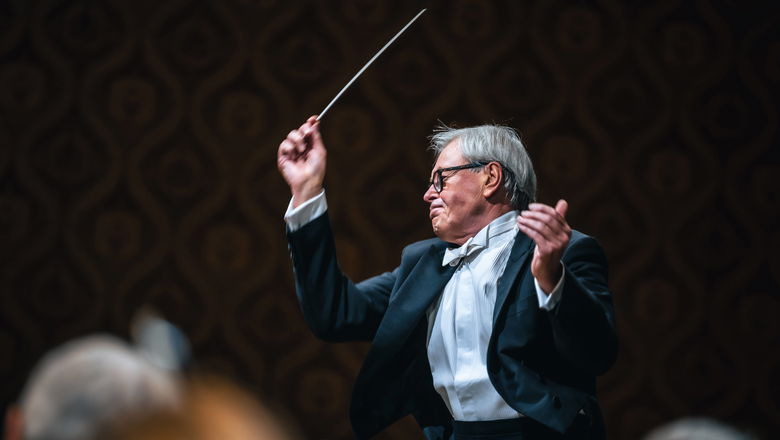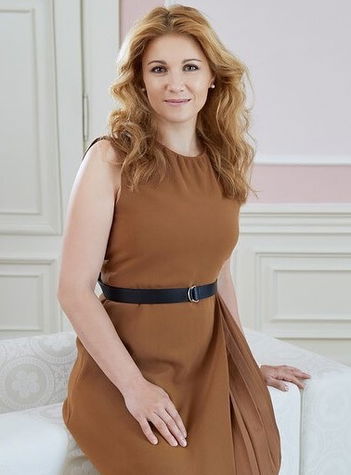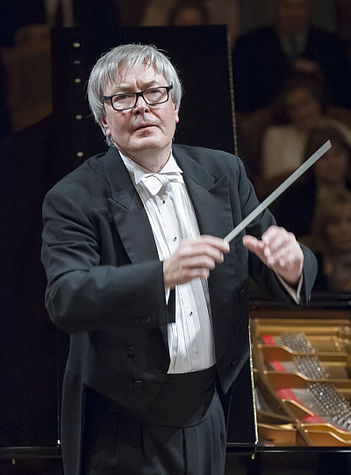The year 1879 began joyously for the 37-year-old Antonín Dvořák. In January he was honoured by a visit from his benefactor the composer Johannes Brahms, in March he received a state stipend for a fifth time, and the Prague public heard the premiere of his Sixth Symphony. A month later, he took part in celebrations of the silver wedding anniversary of Emperor Franz Joseph I and Empress Elisabeth of Bavaria, known as Sissi. At the time, the whole monarchy was in a state of excitement: plans were made for parades, allegorical floats, speeches... The imperial couple was also supposed to visit Prague, so the management of the Provisional Theatre decided to perform Shakespeare’s Midsummer Night’s Dream with incidental music by Felix Mendelssohn Bartholdy for the occasion. Dvořák, whose career had finally begun to develop promisingly at the time, was entrusted with writing a Festival March (later designated as his Op. 54, B88) as an introduction to the performance. The following day, there were celebratory worship services at churches all over Prague, including St Vitus’s Cathedral and the Týn Church. The poor were not overlooked, receiving the gifts of a silver gulden and a ticket to the New Czech Theatre in the Prague suburb Vinohrady, where Tyl’s fairy tale George’s Vision was performed for them. The newspaper Národní listy reported on the event in detail, stating that, among other things, at a public kitchen in Prague’s Lesser Town, 250 poor guests received “a delicious lunch and two litres of beer”. According to the newspaper, the guests were “students, teachers in training, and intelligent people in general who just had the misfortune of being very poor…” Dvořák’s brilliant march has not been forgotten. It was first recorded in 1943 by the Czech Philharmonic with the conductor Karel Šejna, and since then it has been recorded 13 more times, mostly by Czech orchestras.
Besides writing exalted music, Antonín Dvořák could also create melodies as simple as the flowers of the meadow or as earthy as a village dance. One example of this is the first series of Slavonic Dances, Op. 46, B83. Composing them supposedly went so easily that writing out the first draft took just a few hours. Along with the original work for piano four-hands, there is an orchestra version, which was recorded by the Czech Philharmonic in 1935 with Václav Talich. The Slavonic No. 7 in C minor was premiered in December 1878 in Dresden.
Undoubtedly, one of Dvořák’s most touching songs is Když mne stará matka (Songs My Mother Taught Me) from the cycle Gypsy Melodies, Op. 55, B104, to a text by Adolf Heyduk. To this music of great depth and warmth of feeling, Dvořák lent a special quality through a rhythmic contrast: while the vocal line flows along in 2/4 time, the lilting piano accompaniment is written in 6/8 time. When the composer wrote the cycle in 1880, he did not realise that the text would soon have added meaning for him personally—his mother Anna died in December 1882.
In 1884, a festival in the English city Leeds commissioned Dvořák to compose a work on a Biblical subject, but the composer stubbornly insisted on a topic from Czech history, and he got his way. The oratorio Saint Ludmila, op. 71, B144, based on a text by Jaroslav Vrchlický, lasts over two hours. Dvořák worked on composing it for eight months with such intensity of effort that those close to him feared for his life. In the end, physical and mental exhaustion led to fits of agoraphobia, from which Dvořák suffered for the rest of life.
The work’s premiere, warmly received by the English public, was led by the composer himself on 15 October 1886 in Leeds, and the following year Dvořák also conducted the first Czech performance at Prague’s National Theatre, where the important Czech soprano Marie Sittová (1852–1907) sang the part of Saint Ludmila. The aria “From childhood to the altar” is heard in Part I of the work, when Ludmila is visited at Mělník Castle by the hermit Ivan, who preaches the Gospel to her. The oratorio reaches its climax with the baptism of Ludmila and Bořivoj at Velehrad by Bishop Methodius.
“So you’re going to America? Watch out, my dear friend! Everything there is four times more expensive than in our country, and the demands they are making on you are considerable… I am warning you to be careful in your own interest!” wrote Dvořák’s publisher Fritz Simrock in early 1892. By then, however, the composer had firmly made up his mind, and preparations were fully underway for his departure for New York, where he was to become the director of the National Conservatory of Music. Those preparations included a farewell concert tour of Bohemian and Moravian towns, on which he was accompanied by his friends the violinist Ferdinand Lachner and the cellist Hanuš Wihan. For the tour, Dvořák wrote a new work, the Rondo in G minor, Op. 94, B181, in which a tinge of melancholy, like a foretaste of his feelings of separation from his homeland, is wed to the composer’s intrinsic optimism. They played the work together in early January 1892 in Rakovník and Chrudim. There is also a later arrangement for chamber orchestra.
In 1898, Dvořák and his wife Anna celebrated their silver wedding anniversary, and their daughter Otilie married Dvořák’s student Josef Suk. Dvořák also decided that from then on, he would only compose operas: “I’m working on what I want, and not what others want”, he wrote in a letter affirming his change of creative direction. Dvořák’s first opera from this period is The Devil and Kate, Op. 112, B201, in which he took full advantage of the story’s comedic and fanciful character. His music wonderfully depicts various settings, and because the main character, the cheeky girl Kate, likes to dance, Dvořák naturally included stylisations of dances: the waltz, the polka, the polonaise, and even a devilish Infernal Dance in Act II.
Another opera based on a fairy tale is Rusalka, which the Czech Philharmonic’s former chief conductor Jiří Bělohlávek called the “queen of Dvořák’s operas”. The role of Rusalka was first sung by Růžena Maturová. Appearing as the Gamekeeper at the premiere on 31 March 1901 at Prague’s National Theatre was Adolf Krössing (1848–1933), who was especially celebrated as Vašek in Smetana’s Bartered Bride (Smetana also wrote the roles of Skřivánek in The Secret and Michálek in The Devil’s Wall for him). Vilemína Hájková (1872–1944), known for her vocal and theatrical versatility, sang the part of the Kitchen Boy.






